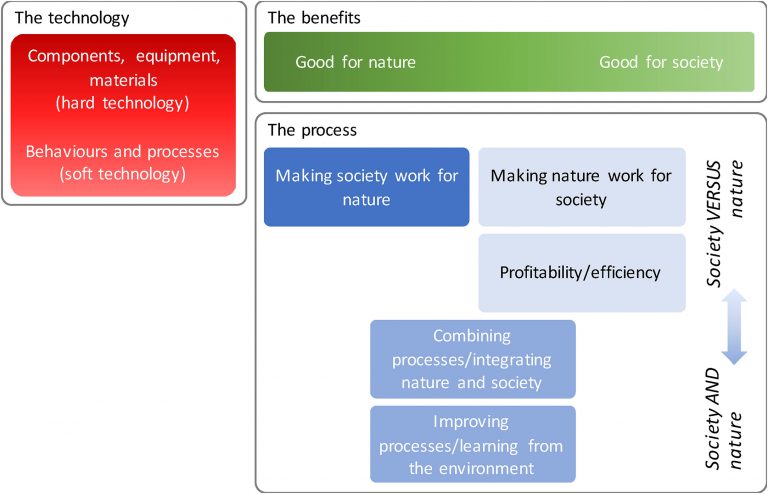In 2015, the term ‘ecotechnology’ was used as one of the themes for a funding call by the joint Baltic Sea research and development programme BONUS. The call defined areas where ecotechnologies could be applied, but did not explicitly define the term itself. Against this backdrop, researchers including Jennifer McConville from our group decided to systematically review the literature on the use of the term ‘ecotechnology’ to inform the future work of the BONUS RETURN project. Many articles simply use the term as a “buzzword” without offering a definition of the term. However, the review found 49 articles with explicit definitions. These definitions contain a variety of embedded concepts for describing the types of technologies, the benefits and the processes that can be seen as ecotechnologies. We clustered these concepts into a conceptual framework that we feel captures the multiple perspectives represented in the term ecotechnology. Note that several of these concepts may be in conflict with each other. This framework is offered as a starting point for discussion around a possible common vision of ecotechnology, or at a way for authors to be transparent about the concepts embedded in their use of the term. On the basis of this review the author propose the following definition for use in the BONUS RETURN project: ‘‘Eco-technologies are human interventions in socialecological systems in the form of practices and/or biological, physical, and chemical processes designed to minimise harm to the environment and provide services of value to society’’ 
Read the full article here: Haddaway, N. R., McConville, J., & Piniewski, M. (2018). How is the term ‘ecotechnology’used in the research literature? A systematic review with thematic synthesis. Ecohydrology & Hydrobiology. In Press.
Contact Jennifer McConville
Post published by Prithvi Simha

some truly great blog posts on this website , thankyou for contribution.